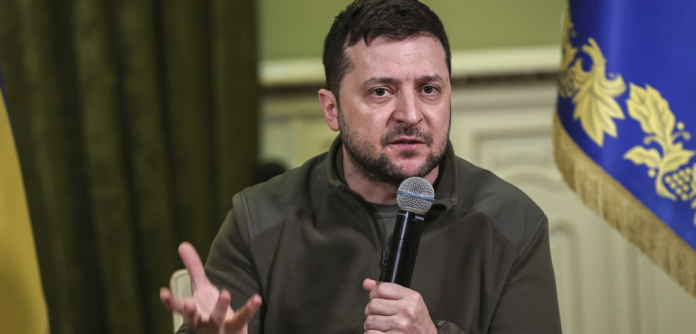Ukrainian President Volodymyr Zelensky has emphasized that the current wartime conditions in Ukraine make national elections unfeasible. Speaking to reporters, Zelensky articulated the prevailing sentiment among the Ukrainian populace:
“During this war, our population is against elections; all people are against it. Why? Because everyone understands what will happen. We need to end the state of war or suspend the state of war. If we suspend the state of war, we will lose our army, and the Russians will be happy.”
This declaration comes at a time when Ukraine is grappling with the complexities of maintaining governance while engaged in a conflict with Russia. Zelensky’s comments highlight the logistical and security challenges of organizing elections under martial law, where military mobilization and national security take precedence over political processes.
The Ukrainian leader argues that holding elections would divert critical resources and attention from the ongoing war effort, potentially weakening the military’s resolve and operational capabilities at a time when unity and focus are paramount. Moreover, the infrastructure necessary for fair and secure voting — such as polling stations, voter lists, and the safe movement of electoral officials — is severely compromised by the conflict.
Critics of the decision to postpone elections argue that it could set a precedent for extending political power under the guise of emergency, raising concerns about democratic backsliding. However, supporters of Zelensky’s stance maintain that the immediate priority must be the safety and defense of the nation, suggesting that any electoral process should wait until peace or at least a significant de-escalation is achieved.
This statement by Zelensky not only reflects the internal consensus within Ukraine but also sets the stage for international discussions about the balance between democratic practices and wartime exigencies. It poses a significant question about how democracies can function and maintain legitimacy during prolonged conflicts.
As Ukraine continues to navigate this challenging period, the international community watches closely, with many nations and organizations weighing the implications of such decisions on both national and global scales.
Key Points:
Public Opposition: Zelensky stated that the Ukrainian public is against holding elections during the conflict, reflecting a broad consensus.
Reason for Opposition: The reason cited is the understanding among citizens of the potential consequences of diverting resources and attention from the war to elections.
State of War: Zelensky mentioned that to hold elections, Ukraine would need to either end or suspend the state of war, which poses significant risks.
Military and Security Concerns: Suspending the state of war could lead to a weakening of the Ukrainian army, potentially benefiting Russian interests.
Logistical Challenges: The ongoing war complicates the logistics of organizing fair and secure elections, including the setup of polling stations and voter registration.
Democratic Concerns: While the decision to delay elections is seen as necessary for national security, it raises questions about democratic processes during wartime.
International Implications: This stance by Zelensky could influence international perceptions and discussions on democracy, governance, and wartime emergency measures.



